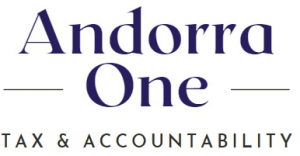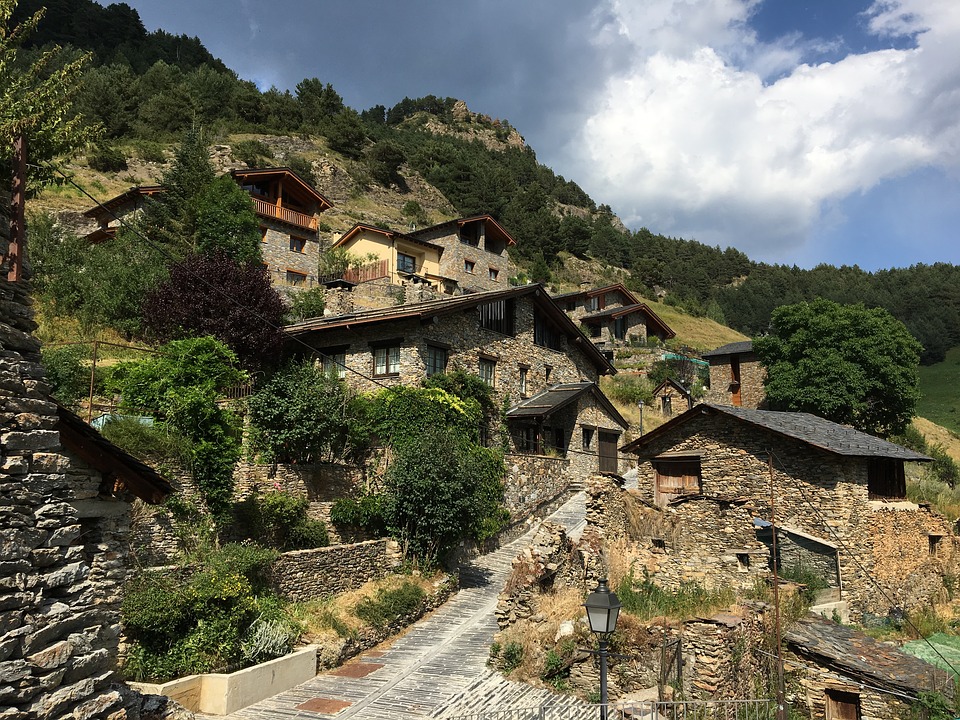More and more companies, entrepreneurs and freelancers are moving to Andorra to save money and improve their quality of life. Here are some of the country’s tax attractions and three reasons to move your residence to Andorra.
1. What is taxation like in Andorra?
Low, attractive and transparent taxation is one of the main reasons for investors and entrepreneurs to consider setting up a company in Andorra. The corporate tax rate is between 2% and 10%, so moving to Andorra and establishing residence in Andorra will represent a considerable saving and an option to be considered for all those with medium and high incomes.
Nowadays, with the proliferation of firms specialising in tax advice, it is important to emphasise the importance of correct advice, using the utmost diligence and competence, with the best professionalism. There are many companies that offer this type of service without being specialised. Andorra One puts at your service the best advisors and professionals for all kinds of procedures related to the transfer of residence and the management of your assets once you are in Andorra.
2. What do you need to know about taxes in Andorra?
IGI: General tax at 4.5%
In order to carry out a good tax planning, you should know first of all that the General Indirect Tax (hereinafter IGI) is the equivalent of the VAT nomenclature, but with the difference that it taxes 4.5%. Andorra has the lowest VAT in Europe and this is one of its main attractions. Not only does it save money for large fortunes, but it is also very convenient for everyday purchases such as food, clothing and technology.
The 4.5% tax rate also applies to the purchase of a property, which is extremely attractive for passive investors who want to obtain a residence permit and thus tax residency by purchasing or investing in an Andorran property.
Corporation tax in Andorra
Subsequently, corporate income tax is levied at a maximum of 10% on profits, so that companies engaged in activities with high profits do not pay any supplementary tax.
How much personal income tax do you pay in Andorra?
Thirdly, personal income tax is not levied up to €24,000 gross per year, with a maximum payment of 2% of the profit. Finally, you should be aware that the annual costs of local taxes are extremely low.
- Summary of taxes in Andorra:
4.5% IGI. - Corporate and personal income tax maximum of 10%.
- There is no inheritance or gift tax
- No forms (e.g. 720) have to be filed.
- Double taxation treaties exist with a large number of countries, including Spain.
3. What types of taxes are applied in Andorra?
IGI, the most widespread tax
- Economic activities with a turnover of more than 40,000 euros and in the case of agricultural activities with a turnover of more than 150,000 euros per year.
- Pay the difference between IGI paid and IGI collected.
- Invoicing of less than 100,000 euros per year is eligible for the simplified regime.
IRNR, the tax for non-residents
- This tax is levied on individuals or legal entities who earn income in Andorra but do not reside in the Principality.
- The main types of income subject to IRNR are:
- Rental of real estate owned by non-residents.
- Reinsurance operations (repairs, maintenance, consultancy, studies, projects, training, conferences, shows, etc.)
- Income that is not subject to IRNR are:
- Dividends
- Interest and other income from movable capital
- International sale of goods
- Wages and salaries affiliated to the Andorran Social Security Fund (CASS)
Personal income tax, only applicable from €24,000 onwards.
- Net income is calculated by direct determination.
- All those with an income of more than 24,000 euros per year are subject to this tax.
Corporate tax in Andorra, a maximum of 10%.
- Turnover must not exceed €300,000 per year (in the case of professional activities it must not exceed €150,000 per year).
- Landlords of properties with a turnover of less than 40,000 euros (if they are not considered entrepreneurs), have to declare the income as income from real estate capital.
- Company directors are subject to the remuneration they receive (set out in the company’s articles of association).
- A fixed % of expenses is deducted depending on the type of business. What solutions does Andorra One offer for Andorra’s taxation and taxation?
👉 Transfer of residence to Andorra, in order to benefit from the economic and social advantages of the country.
✔️ IGI declaration with a periodicity adapted to your turnover.
✔️ Corporate income tax return after permanent and/or temporary corrections of the accounting result (payment on account, tax assessment).
✔️ Personal income tax return: (Reporting of data for the reduction of withholding tax, payment on account in the case of economic activities, personal settlement in the case of individuals or company directors, personal settlement of employees, subject to withholding tax under special conditions).
4. How to keep the accounts of a company in Andorra?
Keeping accounting records is an obligation for any economic activity. It is not only an obligation, it is a reflection and indicator of the performance and areas for improvement of companies. The correct interpretation of the annual accounts will help to improve future expectations.
DEPOSIT OF ACCOUNTS:
From natural persons: self-employed persons
- With an annual turnover of less than 150,000 euros, it is not compulsory to deposit accounts, provided that an affidavit is submitted indicating the total invoiced amount reflected in the accounts.
- It is compulsory to keep an up-to-date register of invoices issued and received.
- 150,000 or more, the same rules apply as for legal persons (explained below).
Legal persons: companies, associations, foundations:
- The preparation of annual accounts is compulsory.
- With an annual turnover of less than 600,000 euros, simplified accounts may be prepared.
- With a turnover of more than €600,000, only normal accounts can be drawn up, unless the following special conditions are met in order to be able to present them in abridged form.
- Assets not exceeding €3,600,000.
- Number of workers > 25.
- Turnover >600,000 euros per year.
What accounting solutions does Andorra One offer?
In relation to the day-to-day accounting of an Andorran company, Andorra One offers a wide range of services:
Get in contact with ANDORRA ONE ir order to:
✔️ Chronological recording of all accounting movements in the journal.
✔️ Corrections and adjustments through provisions, accruals and deferrals to establish a true and fair view of the company.
✔️ Accounting and tax planning.
✔️ Issuance of mandatory registration books of invoices received and issued, with digital and physical archiving of the documents.
✔️Preparation of annual accounts and determination of the result. Deposit of official forms with the Government.
5. Frequently asked questions about taxes and Andorran taxation
Why are taxes so low in Andorra?
Andorra can afford to have such low taxes due to a combination of different factors. These include not belonging to the European Union (being able to follow its own political and economic decisions), having a very high per capita income, or not offering economic and social benefits that other countries do (such as unemployment benefits, other social subsidies or the minimum living income). Andorra also makes a very rational use of its economic resources and has a reasonable and sustainable level of public debt.
Is there a reduced tax?
In addition to having the lowest taxes in Europe (4.5% IGI as a general base), Andorra has super-reduced tax rates for services and products that are considered essential. Some examples are:
- VAT at 0%: hospital care in public centres, cultural or sporting services provided by the public administration, rental of housing, gold as an investment.
- VAT at 1%: food for human consumption (except alcohol), water, books and magazines.
- VAT at 2.5%: transport of persons, tickets to museums or live cultural performances.
When will I be considered an Andorran tax resident?
From the moment the physical permit is obtained, although the official document issued by the Andorran Tax Agency will not be available until 1 July of the following year, as you must have resided in Andorra for more than 183 days in the same calendar year, as well as having verifiable sources of income. We remind you that if you wish to obtain Andorran nationality, you must have been resident in the Principality for 20 years and renounce your previous nationality, as Andorra does NOT admit dual nationality.
How does the tax free system work in the European Union?
Another advantage of being a tax resident in Andorra is that you are entitled to claim a VAT refund (tax free) on all purchases made outside Andorra (and for which VAT is applicable). For example, this would include all products purchased within the European Union and which are to be consumed abroad (such as a mobile phone). This does not include one-off services such as a taxi or a night in a hotel. When the Andorran resident buys in a shop, he/she must ask for the tax free service to be carried out.
The shop will then ask for your residence permit or passport to verify your residence in Andorra. With this information, you will be given an invoice that must be passed through the border (there is a specific booth to pass the bar code). It is important to note that when scanning the receipt, you must take the goods in your car, as the police at customs may ask you to show them your purchase.
Once verified, the invoice can be taken to various banks in the Principality or scanned into applications specifically designed for tax free refunds.
Does Andorra plan to raise taxes or make a change in its tax regime in the short to medium term?
Andorra is a country with a history of very low taxation. This is why neither the government nor the citizens of Andorra are contemplating a significant increase in tax rates, as this would be to give up a part of its essence and one of its main attractions. Moreover, since it is not expected to join the EU, it does not have to comply with minimum tax rates.
How much personal income tax would I pay if my gross salary is 30.000€ per year? What about 60.000€?
In relation to personal income tax, only those who earn a salary of more than 24,000 euros are taxed, with a maximum of 10% for those who earn more than 40,000 euros (it does not mean that if you earn 40,000 euros you will pay 10% of this, but rather that it goes by brackets). For example, if a person in Andorra earns 40,000 euros a year, they will pay 800 euros in personal income tax.
Explanation:
- The first €24,000 would be exempt = 0
- Of the next 16.000€, I would pay 5% = 800€.
- Any income above €40,000 would fall into the 10% tax bracket.
How much does a self-employed person in Andorra pay in contributions, and is there any reduction for young people?
The self-employed fee is €468 per month. During the first year of self- employment, if you are not self-employed, you will pay a very low amount (between €60 and €70). After that, if you are under 35 and have only one employee (freelance, entrepreneur…), you can benefit from an exemption and pay only €140 per month for the following twelve months. Therefore, from the 24th month after the start of your activity, you will have to pay the full amount.
What do most of the taxes we pay in Andorra go to?
Most of the revenue from direct and indirect taxes in Andorra goes to the CASS (Caixa de Seguretat Social Andorrana), which is responsible for the health system and pensions. Another significant part goes to education and the promotion of cultural and tourism projects. Andorra has no expenses such as, for example, an army or duplicities in the administrations, which allows it to have a very attractive tax system.
Why are so many people moving to Andorra – is it just a question of taxation?
For decades, prominent personalities have been moving their tax residence to Andorra. What has been new in recent years is the high quality of life and the entrepreneurial atmosphere that the Andorran country exudes. Not only is it safe and located in the heart of nature, but in a few years it will become the technological and economic capital of southern Europe.
Is it necessary to have a manager or accountant if I want to have my company in Andorra?
It is not necessary, although it is advisable. We are dealing with a country with different legislation and little known by tax advisors than those found in other countries. Thus, having an advisor at your fingertips helps you:
Knowing all the tax consequences of internationalisation and making the best decisions
- Avoid taking tax risks that can lead to economic damage (image and prestige).
- Possibility to reduce tax payable (local deductions)
- Comply with the most up-to-date legislation in your area of expertise and avoid possible sanctions.
- Avoidance of double taxation
In short, having an advisor will help you add to your business, generate new opportunities, create real objectives.


